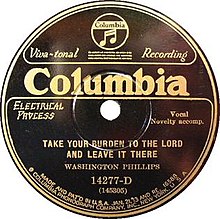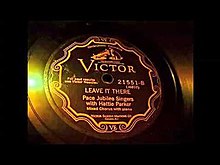
Gospel music is a traditional genre of Christian music and a cornerstone of Christian media. The creation, performance, significance, and even the definition of gospel music varies according to culture and social context. Gospel music is composed and performed for many purposes, including aesthetic pleasure, religious or ceremonial purposes, and as an entertainment product for the marketplace. Gospel music is characterized by dominant vocals and strong use of harmony with Christian lyrics. Gospel music can be traced to the early 17th century.
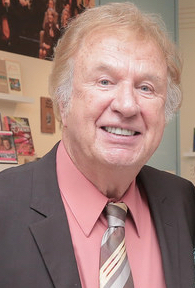
William James Gaither is an American singer and songwriter of Southern gospel and contemporary Christian music. He has written numerous popular Christian songs with his wife Gloria; he is also known for performing as part of the Bill Gaither Trio and the Gaither Vocal Band. In the 1990s, his career gained a resurgence, as popularity grew for the Gaither Homecoming series. In 2023 he released a secular music album with the Gaither Vocal Band entitled “Love Songs”.

The Gaither Vocal Band is an American southern gospel vocal group, named after its founder and leader Bill Gaither. On March 1, 2017, it was announced that the Gaither Vocal Band lineup consisted of Reggie Smith, Wes Hampton, Adam Crabb, Todd Suttles, and Bill Gaither. Although the group started out recording contemporary Christian music in the 1980s, it became known for southern gospel after the popularity of the Gaither Homecoming videos.
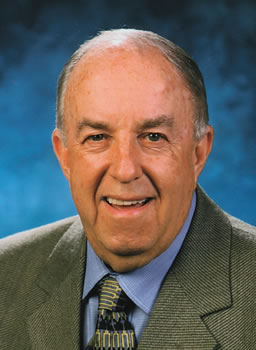
George Wilson Younce was a Southern gospel bass vocalist, known for performing with Southern gospel quartets, especially The Cathedral Quartet.
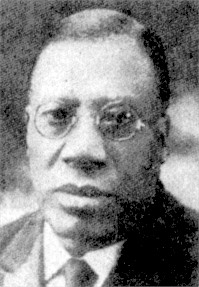
Charles Albert Tindley was an American Methodist minister and gospel music composer. His composition "I'll Overcome Someday" is credited as the basis for the U.S. Civil Rights anthem "We Shall Overcome". Another of his hymns is "Take Your Burden to the Lord and Leave It There" (1916), as well as "What Are They Doing in Heaven?" (1901).
The Martins are a Christian music vocal trio composed of three siblings: Joyce Martin Sanders, Jonathan Martin, and Judy Martin Hess.

Guy Penrod is an American gospel singer. He is known for his work as the lead singer of the Gaither Vocal Band, a position he held from 1995 to 2009.
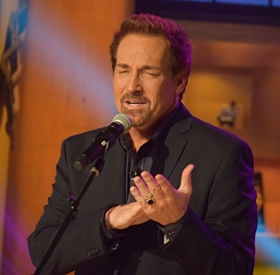
Michael English is an American Christian singer and record producer. Initially, he was a member of his family's singing group, and later a member of The Gaither Vocal Band. During his solo career, he recorded eight studio albums. English's highest-charting solo single was "Your Love Amazes Me", which reached No. 10 on the Adult Contemporary chart in 1996.
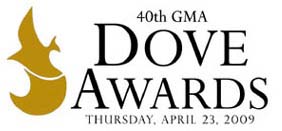
The 40th Annual GMA Dove Awards presentation was held on April 23, 2009 recognizing accomplishments of musicians for the year 2008. The show was held at the Grand Ole Opry House in Nashville, Tennessee, and was hosted by Rebecca St. James, Matthew West, and Lisa Kimmey.
Doug Oldham was an American Southern Gospel singer and a member of the Gospel Music Hall of Fame.
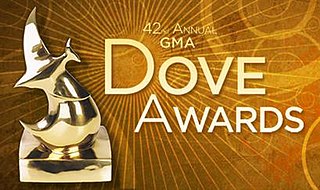
The 42nd Annual GMA Dove Awards presentation was held on April 20, 2011, at the Fox Theatre in Atlanta, Georgia. The show was broadcast on GMC on April 24, 2011, hosted by Sherri Shepherd from The Newlywed Game.
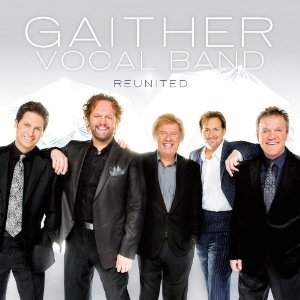
Reunited is an album from contemporary Christian, southern gospel group Gaither Vocal Band. The album was released on September 8, 2009. The album reunites Bill Gaither with singers David Phelps, Wes Hampton, Michael English, and Mark Lowry.

The song known as both "Gospel Boogie" and "A Wonderful Time Up There" was written by Lee Roy Abernathy, and first recorded by him in 1947 under the former name. This release, for the label White Church Record, credits the performance with variant spelling to "Leroy Abernathy Homeland Harmony Quartet".

A Cappella is an album from Contemporary Christian, Southern gospel group Gaither Vocal Band. The album was released on September 30, 2003.

"Bye and Bye We're (or, I'm) Going to See the King" is a Christian song from the African-American musical tradition. It is known by a variety of titles, including "I Wouldn't Mind Dying (If Dying Was All)" and "A Mother's Last Word to Her Daughter". It was recorded seven times before 1930, using the preceding titles.

"Let Your Light Shine on Me" is a traditional gospel blues song, having been recorded by The Wiseman Quartet in 1923, by Ernest Phipps in 1928, and by Blind Willie Johnson in 1929. The song itself is also known as "Shine On Me", "Let It Shine on Me", "Light from the Lighthouse" and "Light from Your Lighthouse".
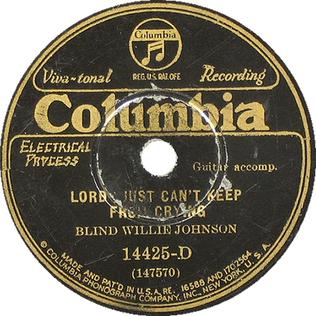
"Lord I Just Can't Keep From Crying" is a traditional gospel blues song recorded in 1928 by Blind Willie Johnson and Willis B. Harris (vocals), who is thought to have been his first wife. Some versions of the song recorded by other artists have slightly different titles: for example, a comma after "Lord"; or, "Cryin'" instead of "Crying"; or, an appended "Sometime" or "Sometimes".
"Denomination Blues" is a gospel blues song composed by Washington Phillips (1880–1954), and recorded by him in 1927.

"Mother's Last Word to Her Son" is a gospel blues song written by Washington Phillips (1880–1954) and recorded by him in 1927.

"What Are They Doing in Heaven?" is a Christian hymn written in 1901 by American Methodist minister Charles Albert Tindley. As of 2015, it has become popular enough to have been included in 16 hymnals.
